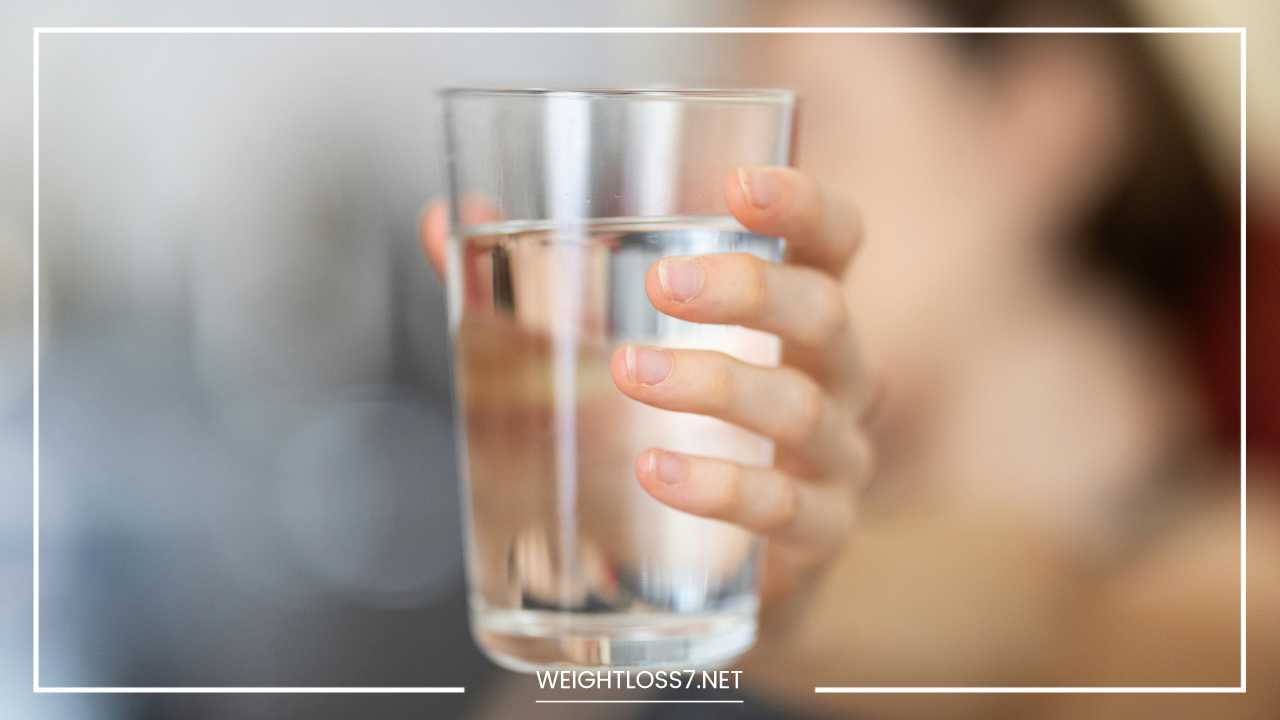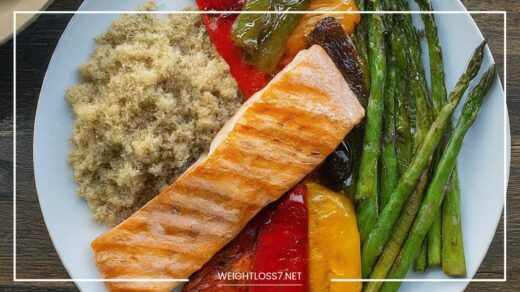How Much Water Should I Drink to Lose Weight

Water Weight Loss
How Much Water Should I Drink to Lose Weight? Unlocking the Power of Hydration
We all know the age-old advice: drink eight glasses of water a day. But in today’s world of fad diets and conflicting information, it’s easy to wonder – is water really the magic bullet for weight loss?
The answer, like most things in health and wellness, is a nuanced “yes, but…”While water itself won’t melt away pounds overnight, proper hydration is a powerful tool that can significantly boost your weight loss efforts.
This comprehensive guide dives deep into the world of hydration and explores how it can be your secret weapon for achieving a healthy weight. We’ll explore the science behind why water matters, debunk the “eight glasses” myth, and equip you with practical strategies to make water work for you.
The Science Behind Water and Weight Loss
Water is the foundation of life, literally making up around 60% of your body weight. It plays a crucial role in various bodily functions that directly impact weight management. Let’s delve into the science behind how water can support your weight loss journey:
- Appetite Suppression: Our thirst cues can sometimes be misinterpreted as hunger pangs. Drinking water before meals can help you feel fuller for longer, leading to a reduction in calorie intake [1]. Studies have shown that dieters who consumed water before meals lost significantly more weight compared to those who didn’t [2]. This is because water stretches your stomach, sending signals to your brain that you’re satiated.
- Metabolic Boost: Water is involved in numerous metabolic processes, including the breakdown of food and the conversion of nutrients into energy. Studies suggest that drinking water can increase your metabolic rate, even if slightly. This means you burn a few more calories throughout the day, contributing to a calorie deficit essential for weight loss [3].
- Aids Digestion: Water acts as a lubricant for your digestive system, ensuring smooth movement of food through your gut. When dehydrated, your body struggles to break down food efficiently, potentially leading to bloating, constipation, and a sluggish digestive system. Proper hydration keeps your digestion running smoothly, which can indirectly contribute to weight management.
- Improved Physical Performance: Staying hydrated is crucial for optimal physical performance during exercise. Dehydration can lead to fatigue, decreased muscle strength, and reduced endurance. By staying hydrated, you can maximize your workout efficiency and potentially burn more calories during exercise.
- Flushing Out Toxins: Water plays a vital role in detoxification. It helps your body eliminate waste products and toxins through sweat and urine. While not a direct weight loss mechanism, proper waste removal contributes to overall health and can improve your body’s ability to function optimally, potentially aiding weight management efforts.
Beyond the “Eight Glasses” Myth: Individualized Hydration Needs
The oft-repeated “eight glasses of water a day” rule is a good starting point, but it might not be the perfect answer for everyone. Your ideal water intake depends on several factors that influence your fluid needs:
- Body Weight and Composition: Larger individuals generally require more water than smaller ones. A common recommendation is to consume half your body weight in ounces of water daily. So, someone weighing 150 pounds would aim for approximately 75 ounces. However, muscle mass also plays a role. Muscle tissue holds more water than fat, so individuals with a higher percentage of muscle mass might need slightly more water.
- Activity Level: The more active you are, the more you sweat. To replenish fluids lost through perspiration, you’ll need to increase your water intake. Athletes and individuals with physically demanding jobs might require significantly more water than those with sedentary lifestyles.
- Climate: Hot and humid environments lead to greater fluid loss through sweat. People living in tropical climates or those who frequently spend time outdoors in hot weather will likely need to adjust their water intake accordingly.
- Overall Health: Certain medical conditions or medications can influence your water needs. For example, individuals with kidney disease or those taking diuretics might need to monitor their fluid intake more closely. Consulting your doctor can help you determine the personalized water intake that’s right for you.
Beyond Thirst: Signs of Hydration and Dehydration
While the amount of water you need can vary based on individual factors, there are general signs that can help you gauge your hydration status:
Signs of Hydration:
- Clear or light yellow urine: This indicates your body has sufficient fluids to function optimally.
- Regular urination (around every 2-4 hours): Frequent urination is a sign that your kidneys are functioning properly and filtering waste products.
- Feeling energetic and alert: Dehydration can lead to fatigue and sluggishness. Staying hydrated ensures your body has the fluids it needs for optimal energy levels.
- Moisturized skin: Well-hydrated skin has a healthy glow and elasticity. Dehydration can lead to dry, flaky skin.
Signs of Dehydration:
- Dark-colored urine: Concentrated urine with a dark yellow or amber color indicates your body is holding onto fluids because it’s dehydrated.
- Infrequent urination: Urinating less than usual, especially if your urine is concentrated, is a sign of dehydration.
- Fatigue: Dehydration can zap your energy levels, leading to fatigue and difficulty concentrating.
- Dry mouth and skin: As mentioned earlier, dehydration can manifest as dryness in your mouth and skin.
- Headache: Dehydration can trigger headaches, adding another layer of discomfort on top of feeling sluggish.
Listen to Your Body: Thirst is a natural indicator of dehydration, but it’s not always the most reliable cue. Don’t wait until you feel parched to drink water. Aim to sip water throughout the day, even if you don’t feel acutely thirsty. This proactive approach ensures your body stays consistently hydrated.
Making Water Work for You: Strategies to Increase Your Intake
Habits are key to staying hydrated. Here are some practical strategies you can implement to increase your daily water intake:
-
Invest in a Reusable Water Bottle: Having a visually appealing and convenient water bottle by your side serves as a constant reminder to drink. Choose a bottle with a size that caters to your needs and preferences. Consider a water bottle with motivational markings to track your progress throughout the day.
-
Set Reminders: Technology can be your friend! Use your phone’s built-in reminder app or a dedicated hydration app to set alerts throughout the day reminding you to take a sip of water.
-
Flavor it Up: Plain water can sometimes feel boring. Add slices of lemon, cucumber, ginger, or berries to your water for a refreshing and flavorful twist. Experiment with different combinations to find what you enjoy. Fruits and herbs can add a touch of sweetness or a subtle hint of flavor without adding unnecessary calories.
-
Embrace Herbal Tea: Unsweetened herbal teas are a delicious and hydrating alternative to sugary drinks. Explore a variety of herbal teas like peppermint, chamomile, or ginger to find your favorites. These can be enjoyed hot or iced, depending on your preference.
-
Eat Water-Rich Foods: Many fruits and vegetables have high water content, contributing to your daily fluid intake. Incorporate plenty of water-rich options like watermelon, cucumber, celery, spinach, and tomatoes into your diet.
-
Pair Water with Meals: Make water your go-to beverage with meals instead of sugary drinks like soda or juice. Not only will this help you stay hydrated, but it can also curb cravings for sugary beverages and potentially reduce your overall calorie intake.
Beyond Water: Hydration Helpers
While water is the gold standard for hydration, there are other options you can consider:
- Unsweetened Beverages: Unsweetened green tea, black tea, and certain diluted fruit juices can contribute to your fluid intake. However, be mindful of sugar content in commercially available juices, as they can be high in calories. Opt for freshly squeezed or diluted versions for better control.
- Electrolyte-Enhanced Water: For individuals with very active lifestyles or those living in hot climates, electrolyte-enhanced water can be a good option, especially during or after prolonged exercise. Electrolytes like sodium and potassium help regulate fluids in the body and can be beneficial for replenishing what’s lost through sweat. However, consult your doctor before making electrolyte-enhanced water a regular part of your routine, especially if you have any underlying health conditions.
Remember: While these options can contribute to your fluid intake, water should still be your primary source of hydration.
Safety Considerations: Overhydration is Possible
While staying hydrated is essential, it’s important to note that overhydration, although uncommon, can be dangerous. Excessive water intake can dilute electrolytes in your body, leading to a condition called hyponatremia. Symptoms of hyponatremia can include headache, nausea, confusion, and in severe cases, seizures or coma. It’s crucial to listen to your body’s cues and avoid forcing yourself to drink beyond your natural thirst.
When in doubt, consult your doctor: If you have any concerns about your hydration needs or experience any unusual symptoms, it’s always best to consult a healthcare professional. They can assess your individual needs and provide personalized guidance.
Final Word: Water – Your Weight Loss Ally
Drinking enough water is a simple yet powerful strategy to support your weight loss journey. By staying hydrated, you can:
- Curb cravings and feel fuller for longer, potentially reducing calorie intake.
- Boost your metabolism and burn slightly more calories throughout the day.
- Optimize your digestive system for smoother food processing.
- Enhance your physical performance during workouts, leading to potentially burning more calories.
- Support overall health and detoxification, creating a foundation for weight management success.
Remember, consistency is key! Making water your go-to beverage and incorporating the tips mentioned above into your daily routine will ensure you stay consistently hydrated. With a commitment to hydration, you can unlock the power of water and move closer to achieving your weight loss goals.
Beyond Weight Loss: The Lifelong Benefits of Hydration
While water plays a crucial role in weight management, its benefits extend far beyond the number on the scale. Here are some additional reasons to prioritize hydration:
- Improved Cognitive Function: Dehydration can impair your focus, memory, and concentration. Staying hydrated keeps your brain functioning optimally for better cognitive performance.
- Boosted Energy Levels: As mentioned earlier, dehydration can lead to fatigue. Drinking enough water ensures your body has the fluids it needs for sustained energy levels throughout the day.
- Healthy Skin: Proper hydration keeps your skin plump and glowing. Dehydration can contribute to dryness, wrinkles, and other skin concerns.
- Regulation of Body Temperature: Water plays a vital role in regulating your body temperature. Staying hydrated helps your body sweat effectively, which is crucial for maintaining a healthy internal temperature, especially during exercise or hot weather.
- Reduced Risk of Certain Health Conditions: Studies suggest that adequate hydration may help reduce the risk of kidney stones, urinary tract infections, and even constipation.
A Final Note: Water is Your Ally, Not Your Enemy
Sometimes, water gets a bad rap for bloating people. This can happen if you significantly increase your water intake suddenly. However, the bloating is usually temporary and your body will adjust within a few days. The long-term benefits of proper hydration far outweigh any temporary discomfort.
Making water your best friend is a simple yet powerful way to invest in your overall health and well-being. By incorporating the strategies outlined in this guide, you can unlock the power of water and embark on a journey towards a healthier, happier you.

















